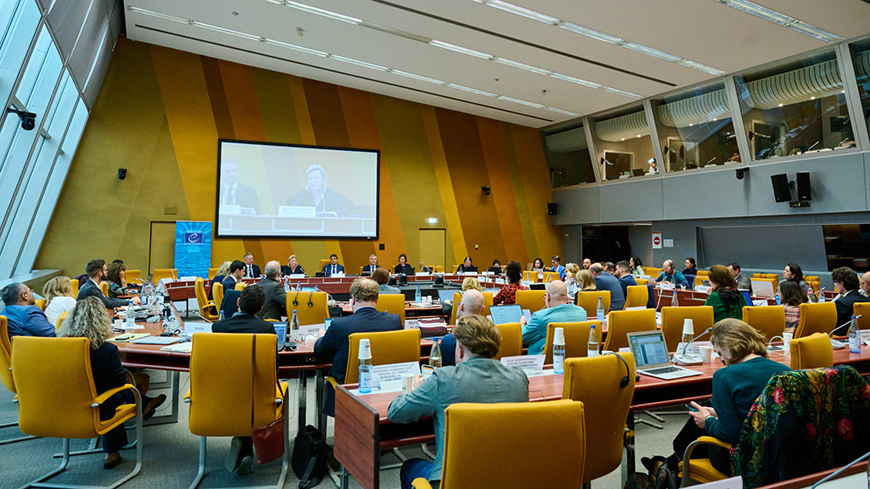Well-designed and well-managed intercultural integration strategies are essential to increase the resilience and cohesion of European societies, and to build a solid basis for the inclusion of everyone, including migrants arriving to Europe. The Council of Europe’s Steering Committee on Anti-discrimination, Diversity and Inclusion (CDADI) has adopted two practical documents to help states ensure that policy makers, public officials and the general public perceive diversity not as a threat but as a collective advantage that generates dividends - not only for migrants, but for society as a whole.
Ensuring equality, valuing diversity, fostering meaningful intercultural interaction, and promoting active citizenship are the core principles of the Council of Europe’s intercultural integration model. This model focuses on intercultural interaction as a way to building bridges between diverse individuals and communities and is based on the assumption that “integration is a two-way street”.
As demonstrated by several studies, ethnic and religious diversity at the local and national levels is in fact associated with increased economic and social well-being. Realising the advantage of diversity is, however, not automatic. It requires that diversity be accompanied by specific policies which make society truly inclusive while managing conflicts that may threaten community cohesion.
The CDADI documents “Capacity building programme and tools for migrant integration” and “Manual for the design of a training course on intercultural competence” which follow the adoption in April this year of the Recommendation CM/Rec(2022)10 on multi-level policies and governance for intercultural integration, are an important contribution to shaping such policies and actions and thus increasing member states’ capacities to implement Council of Europe standards in this field.
While acknowledging that there is no “one size fits all” answer, the capacity building programme aims to foster the design and adoption by European states of national intercultural integration strategies which engage state institutions, regional and local authorities, and civil society. These strategies go beyond labelling migrants and focus on how individuals can contribute to the well-being of the whole society, while paying special attention to the groups that may be more at risk of multiple discrimination, such as migrant women, children, young people and LGBTI persons.
CDADI stresses that having an interculturally competent staff in public administration becomes even more relevant in the current geopolitical, sanitary and climate contexts, CDADI stresses. However, administrators, especially in monocultural teams, may not always be prepared to meet the demands and needs generated by a diverse population; there may be certain resistance to change and a lack of technical and, above all, political training.
The manual for designing intercultural training courses seeks to overcome these barriers. It specifically focuses on communicating to the participants the value of intercultural integration and on spreading it further, as well as on reinforcing their skills to tackle prejudice and stereotypes, and to identify and address multiple discrimination. The manual further discusses ways to foster inclusive communication, provides practical tips to trainers on creating a “judgment-free”, stimulating environment and proposes model quizzes and exercises.




